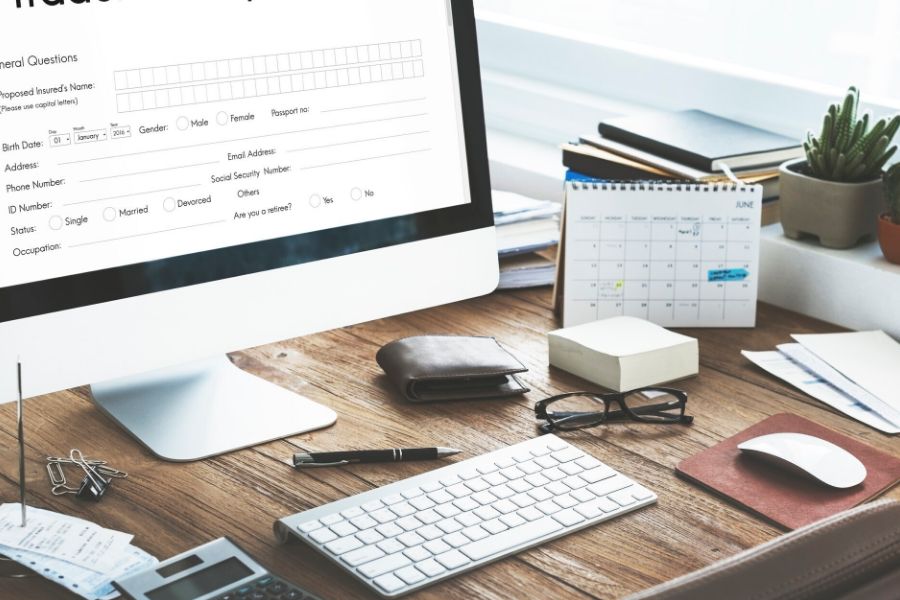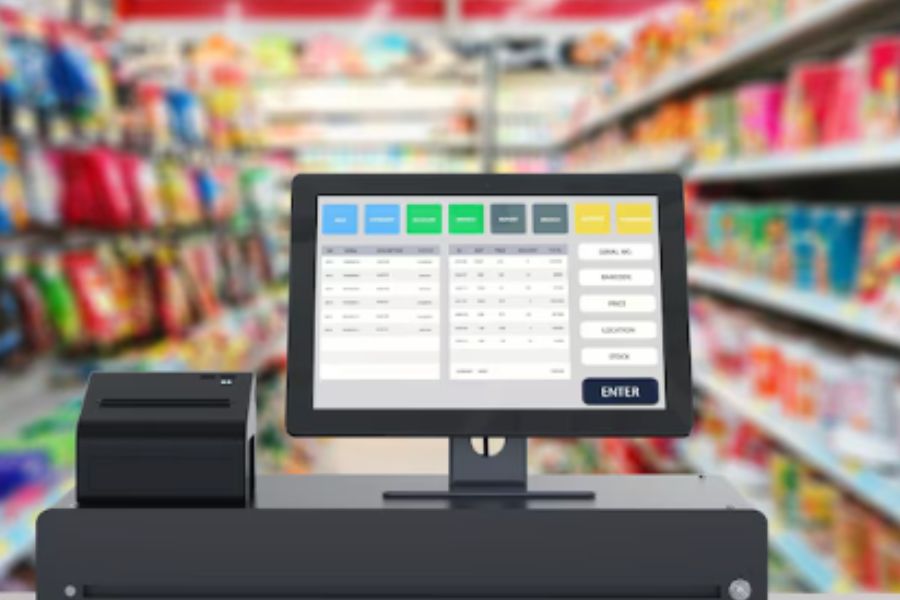The firearms retail industry has multiple regulations and documentation requirements to ensure compliance and proper record-keeping, including Electronic Form 4473 (e-Form 4473). This digital version of the mandatory firearm transaction form streamlines the process, making it more efficient and user-friendly. Future gun store owners must understand and stay obligated to e-form 4473 to maintain legal compliance and ensure the accurate documentation of firearm sales. This guide delves into the essentials of e-Form 4473, highlighting its purpose, benefits, and practical steps to implement it in your business.
Understanding ATF Form 4473
What is Form 4473?
ATF Form 4473, officially known as the Firearms Transaction Record, is a crucial document required for every firearm transaction conducted by a licensed dealer in the United States. This form records the buyer’s personal information, including name, address, and birthdate, and requires the buyer to answer a series of eligibility questions.
The information on Form 4473 is used to conduct a background check through the National Instant Criminal Background Check System (NICS), ensuring firearms do not end up with prohibited individuals.
Legal Requirements
The completion of Form 4473 is mandated by federal law under the Gun Control Act of 1968. Both the buyer and the seller must accurately complete the form for each firearm transaction.
The seller, typically a Federal Firearms License (FFL) holder, is responsible for maintaining these records and ensuring they are readily available for inspection by the Bureau of Alcohol, Tobacco, Firearms, and Explosives (ATF).
Failure to properly complete or retain Form 4473 can result in severe penalties, including fines, license revocation, and even criminal charges. This legal requirement underscores the importance of meticulous compliance with Form 4473.
Importance of Compliance
Compliance with Form 4473 is not merely a bureaucratic obligation but a critical aspect of responsible firearm sales. Properly completed forms ensure that firearms are sold only to legally eligible individuals, enhancing public safety. Moreover, meticulous adherence to Form 4473 requirements protects gun store owners from legal repercussions and supports the integrity of the firearms industry.
As such, adopting electronic versions of Form 4473 can significantly improve accuracy, efficiency, and compliance, minimizing the risk of errors and ensuring that all legal obligations are met. Utilizing software solutions designed for electronic Form 4473 can streamline the process, reduce paperwork, and provide an added layer of security and convenience for both the dealer and the customer.
Transitioning to Electronic Form 4473
Benefits of Electronic Forms
The transition to Electronic Form 4473 offers numerous benefits that enhance the efficiency and accuracy of firearm transactions. One of the primary advantages is the reduction of human error. Electronic forms often include built-in validation checks, ensuring that all required fields are completed correctly before submission. This minimizes the risk of incomplete or incorrect information, which can lead to compliance issues.
Besideds, electronic forms streamline the process for both the buyer and the seller, reducing the time needed to complete each transaction. Digital storage also facilitates easy retrieval and management of records, simplifying the ATF’s audits and inspections.
This is particularly important given that, in 2021, over 10,300 guns were either lost by or stolen from gun shops and their inventory (ATF). Proper electronic record-keeping can help mitigate such losses by maintaining accurate and accessible records.
Legal Acceptance
Electronic Form 4473 is fully accepted by the ATF, provided that the electronic system used meets specific regulatory requirements. These systems must ensure the integrity and confidentiality of the records, including features such as secure access controls, audit trails, and data encryption. The ATF has issued guidelines and standards for electronic records to ensure that they are as reliable and secure as traditional paper forms.
By adhering to these standards, gun store owners can confidently transition to electronic forms, knowing they are compliant with federal regulations.
Cost and Resource Considerations
While the initial investment in electronic Form 4473 systems can be significant, the long-term cost savings and operational efficiencies are substantial. Implementing electronic forms can reduce the need for physical storage space, minimize paper costs, and lower the risk of incurring penalties from compliance errors.
Moreover, the time saved in processing and managing forms can be redirected to other critical business functions, enhancing overall productivity. Resource considerations also include training staff to effectively use the new system, which is typically offset by the benefits of faster and more accurate transactions.
In short, the transition to Electronic Form 4473 represents a strategic investment that can lead to improved compliance, customer satisfaction, and operational efficiency.
Step-by-Step Guide to Filling Out Electronic Form 4473
Filling out Form 4473 is a must step in legally purchasing a firearm in the United States. The form is required by the Bureau of Alcohol, Tobacco, Firearms and Explosives (ATF) to document the transfer of firearms from a dealer to a buyer.
Here’s a comprehensive guide to help you complete this process electronically.
Step 1: Initiating the Firearms Transaction
To begin, visit the gun store where you intend to purchase the firearm. The dealer will initiate the electronic Form 4473 on their ATF-approved platform.
Note: You cannot fill out an ATF Form 4473 electronically on your own. Federal law requires that the initial completion of the form be done in person with a licensed firearms dealer (FFL).
Step 2: Completing Section A: Personal Information
With the dealer’s assistance, you will fill in your personal details, including:
- Full name
- Address
- Date of birth
- Place of birth
- Gender
- Social Security Number (optional but recommended for identification)
- Ethnicity and race
Ensure all the information is accurate and matches your government-issued ID.
Step 3: Completing Section B: Firearm Information
Next, you’ll enter details about the firearm(s) involved in the transaction:
- Manufacturer and importer (if applicable)
- Model
- Serial number
- Type (pistol, revolver, rifle, etc.)
- Caliber or gauge
Carefully verify the firearm information to avoid errors.
Step 4: Completing Section C: NICS Background Check
The dealer will conduct a National Instant Criminal Background Check System (NICS) check in this section.
They will submit your information for the background check. This process might take some time, depending on your background and the system’s efficiency.
Step 5: Completing Section D: Certification of Transferee
As the transferee, you will certify that all provided information is correct. Carefully read the certification statement, then sign and date the form electronically.
Step 6: Completing Section E: Certification of Transferor
In this final section, the firearm dealer (transferor) certifies that they have reviewed the form, verified your identification, and confirmed your background check status. The dealer then signs and dates the form, completing the transaction.
Managing Electronic Form 4473
Adopting an electronic system for managing Form 4473 can streamline firearms transactions, improve accuracy, and ensure compliance with federal regulations. This guide provides key steps and considerations for implementing and managing electronic Form 4473 in your business.
Choosing the Right Software
Selecting the right software is crucial for effectively managing electronic Form 4473.
FastBound is a popular choice due to its user-friendly interface, robust compliance features, and reliable customer support. FastBound ensures that all transactions are conducted according to ATF regulations, providing peace of mind for both dealers and buyers.
Integration with POS Systems
Integrating your electronic Form 4473 software with your POS system can further enhance efficiency and accuracy. ConnectPOS is a versatile POS system that seamlessly integrates with various platforms, including FastBound. This integration allows for smooth data transfer, reduces manual entry errors, and improves overall transaction speed.
Training Staff
Ensure that all staff members are well-versed in using the electronic Form 4473 software and understand the importance of accuracy and compliance. Conduct regular training sessions and provide access to comprehensive manuals and support resources.
Record-Keeping Requirements
Maintaining accurate and thorough records is a legal requirement for firearm transactions. Electronic systems can simplify this process by automatically storing and organizing data. Ensure your chosen software complies with ATF record-keeping requirements and allows easy access for audits and inspections.
Data Security
Protecting sensitive customer information is paramount. Choose a software solution that offers robust data security features, including encryption, secure user authentication, and regular software updates. Implement additional security measures such as regular backups and restricted access to sensitive data.
Audit and Inspection Readiness
Being prepared for audits and inspections is a critical aspect of compliance management. Your electronic Form 4473 system should provide easy access to all necessary records and support features that simplify the audit process. Regular internal audits can help identify and correct any discrepancies before they become an issue during an official inspection.
ConnectPOS is a powerful point-of-sale system that can be tailored for the firearms industry, seamlessly integrating with market-trusted software like FastBound to ensure compliance with ATF regulations. Designed with the niche market in mind, ConnectPOS offers a suite of features including face recognition, robust data security, and comprehensive inventory management, making it an ideal solution for firearm retailers seeking to enhance operational efficiency and maintain regulatory compliance.
FAQs: Electronic Form 4473
- What Happens During an ATF Inspection?
During an ATF inspection, agents will review a firearm dealer’s records to ensure compliance with federal regulations. This includes verifying that Form 4473 is properly completed for each firearm transaction, that background checks were conducted, and that records are accurately maintained and stored. Inspectors may also review inventory and other business records. The goal of the inspection is to ensure that the dealer is operating within the law and to identify any areas where improvements might be needed.
Dealers are typically notified in advance of routine inspections, but unannounced inspections can occur if there are compliance concerns. Proper preparation and accurate record-keeping can help facilitate a smooth inspection process.
- Can Electronic Form 4473 Be Used for All Types of Firearms?
Yes, Electronic Form 4473 can be used for all types of firearms, including pistols, revolvers, rifles, and shotguns. The electronic version of the form is designed to capture the same information as the paper version, ensuring compliance with ATF regulations regardless of the type of firearm being transferred. This digital format streamlines the process for both buyers and sellers, enhancing accuracy and efficiency while maintaining the necessary legal standards for all firearm transactions.
Conclusion
Electronic Form 4473 helps future gun store owners ensure compliance, streamline operations and enhance customer experience. This guide has covered the importance of Form 4473, the benefits of its electronic version, and the steps to integrate it into your business effectively. By choosing the right software, integrating with POS systems, training staff, and ensuring data security, you simplify transactions and meet federal regulations.
Ready to revolutionize your firearms retail operations? Contact ConnectPOS today and discover how our tailored solutions can elevate your business.



